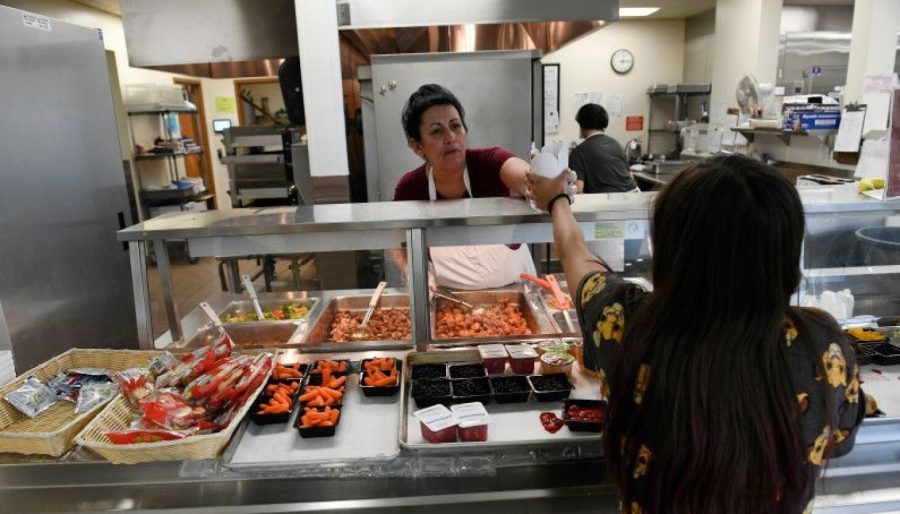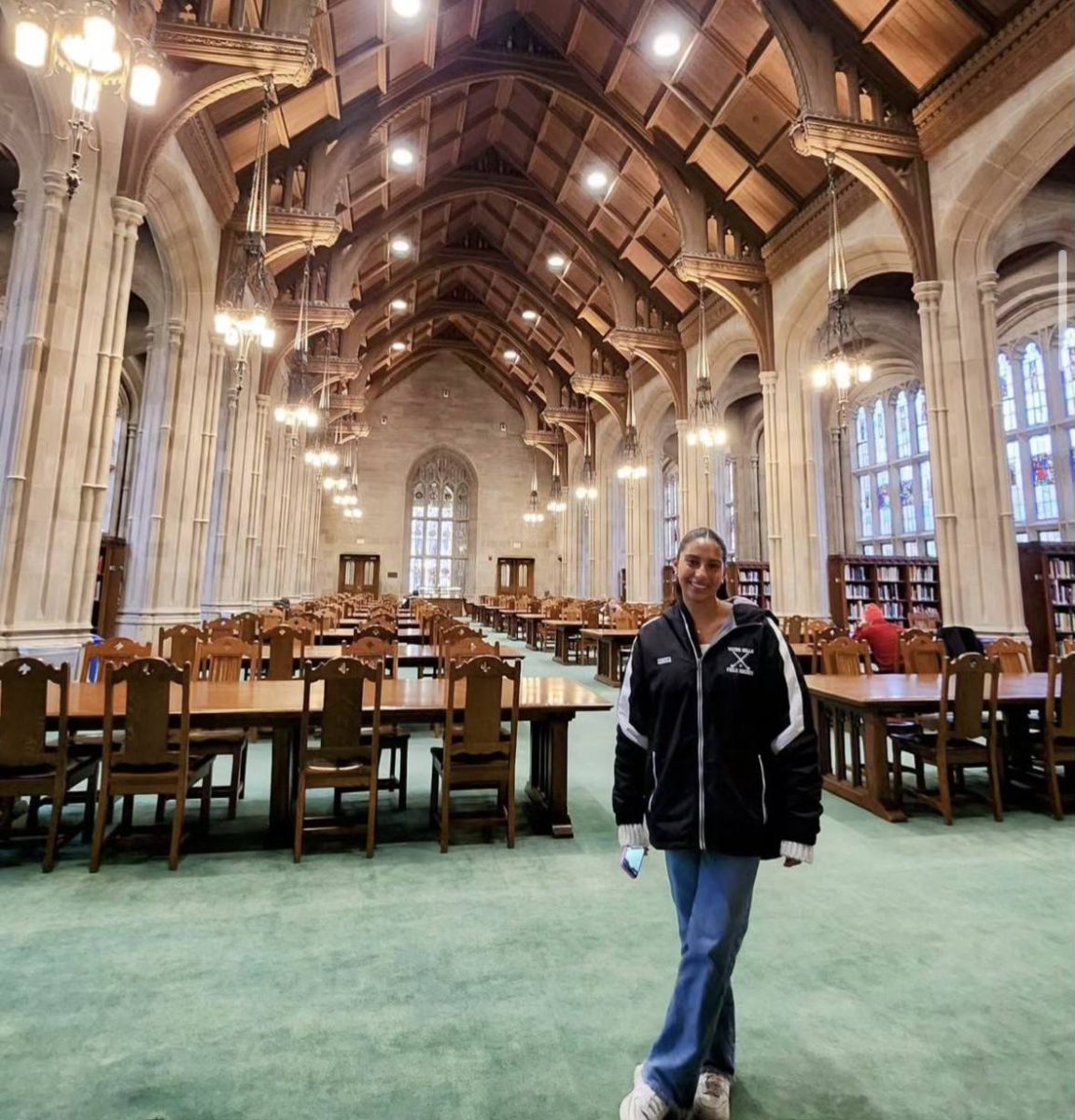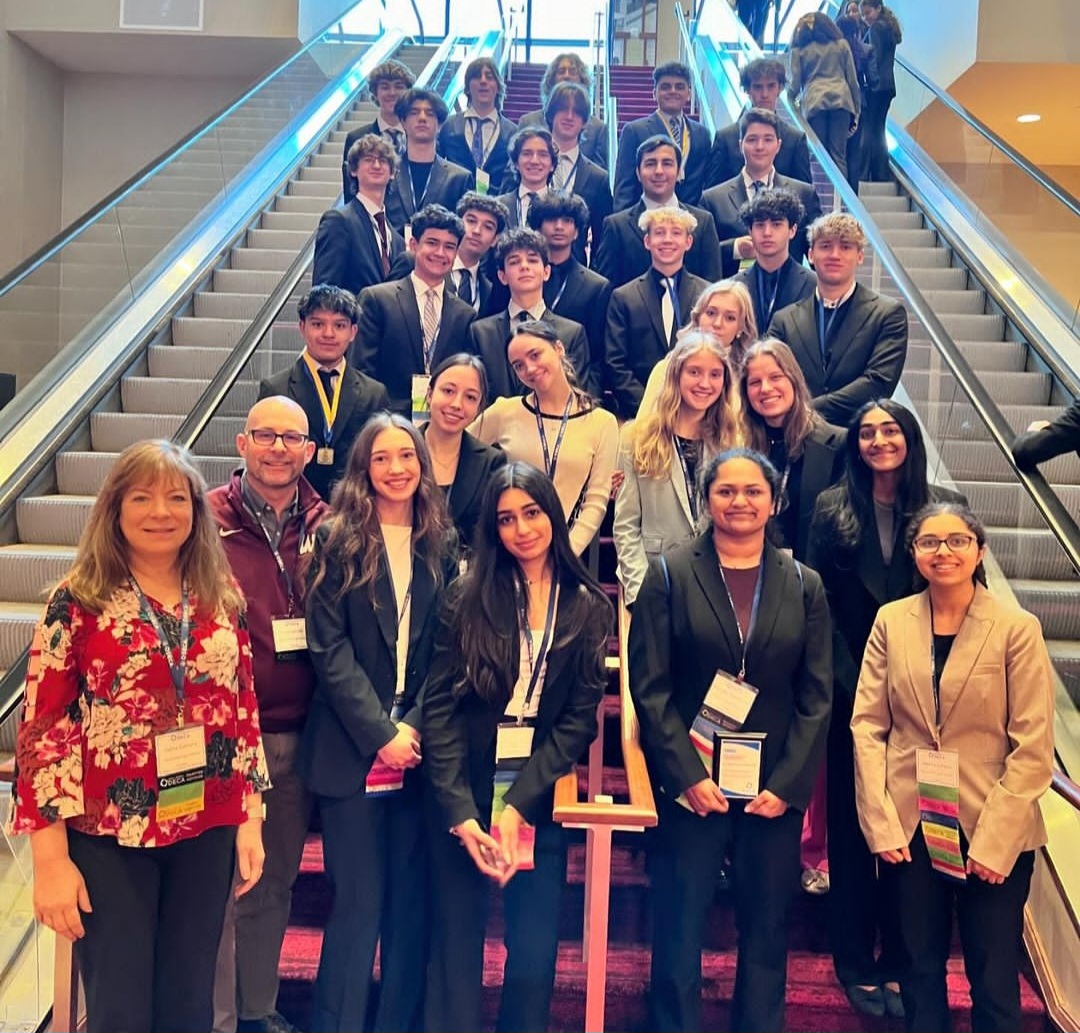Opinion: Lack of Vegetarian Lunch Options Burdens Students
January 12, 2023
When people walk into a restaurant or are going to eat—they expect to have their dietary restrictions met and obtain suitable meals accommodating to their needs. However, this is not the reality for vegan and vegetarian students at Wayne Hills, who are burdened by the lack of vegetarian food options.
There are innumerous reasons people implement a plant-based diet—in an attempt to be more environmentally conscious, health restrictions, simply not liking the texture or taste, or advocating for animal rights.
According to the UN, meat makes up more than 14% of all man-made greenhouse gases. In addition, evidence finds that livestock feeds on over 30 percent of the planet’s land. Animals consequently end up over-grazing—leading to desertification, loss of the land’s fertility, and soil erosion. Moreover, meat requires a lot more water to produce. It takes around 60 pounds of water to produce one pound of potatoes, but more than 20,000 pounds of water to produce a pound of beef. A lot of land is being used to raise these animals for consumption.
If Wayne Hills cuts back on the insurmountable level of meat it serves, it could reduce its carbon footprint, drastically.
Whatever it may be, more students are making a push to eat less meat: including myself. This means if you don’t live in a vegetarian or vegan household, you need to make an active effort to eat healthy meals on your own.
Although it may be exhausting at times, this newfound sense of individualism and the opportunity to educate yourself on the kinds of food your putting into your body is awarding. Nevertheless, it never stops being awkward when my friends and I go out to eat, and while they are eating a delicious 5-star meal, I’m left with a sad salad. This is because there is a discernible lack of meat alternatives for people who choose to have a plant-based diet. Not only at restaurants, but even here at Wayne Hills.
Consistently, the main foods served during lunch contain meat. Few plant-based options provide students with a healthy lunch and enough fuel to last the day. Pasta, french fries, a salad, or a bag of chips are the only things students get to choose between.
Sophomore Natalie Lewis has not eaten meat since the 5th grade because of the effects the industry has on the planet and animals. “Everytime I would eat meat, or just see it, I would think about animal cruelty. With every bite, I would be thinking about the process it would take to get me this food.”
“There are not enough meat options at lunch.” She went on to say that there is pizza or mac cheese, however, there is a disproportionate level of meat options: various kinds of chicken with a side of fries or tater tots.
“Somedays I want to have tater tots or fries just like everyone else can, but I can not because they are paired with meat. Maybe one could say I could eat around the meat, but personally, I do not let my food touch meat at all so it is not an option. There have been a couple of days where just the side of fries or tater tots were sold, but very rarely.” This leaves her not able to purchase food, citing that last year the bagel bags were the only thing she ate.
Now, while other students can rely on the school to provide them with the food necessary for them to go through the food, Lewis and other vegan and vegetarian students have to go out of their way to insure they have a good lunch. Subsequently, Lewis and I both bring food from home. She said, “I bring protein bars, my own chips, cereal, fruit, etc. I rather bring from home knowing there may not be an option for me to eat at school that is vegetarian.”
Freshman Taya Mustafa remarked that she barely eats lunch at school because “it feels like no one cares. We’re kind of just expected to eat meat like everyone else.”
Having a meal is a right, not a privilege and schools should incorporate a more diverse selection of foods to adhere to their diverse student body. As the world grows more aware of the effect meat has on the climate, there will be more of a push towards an all-green diet and people will have to comply.
















